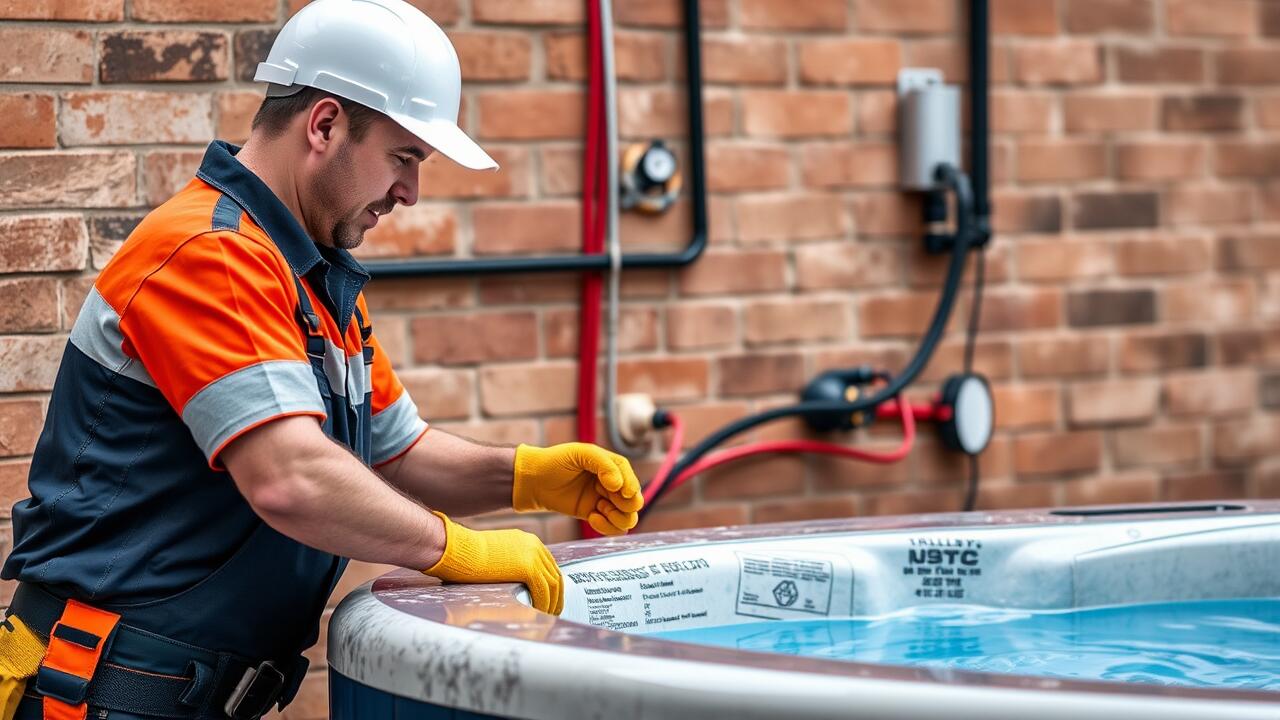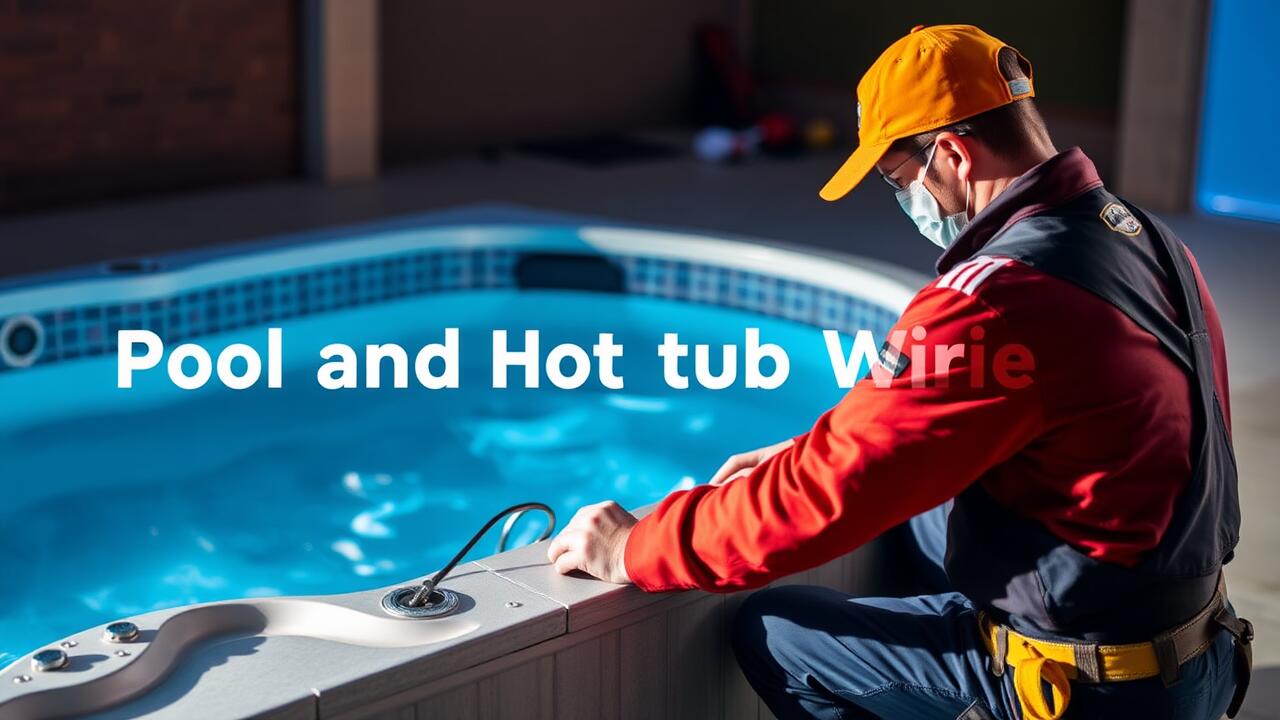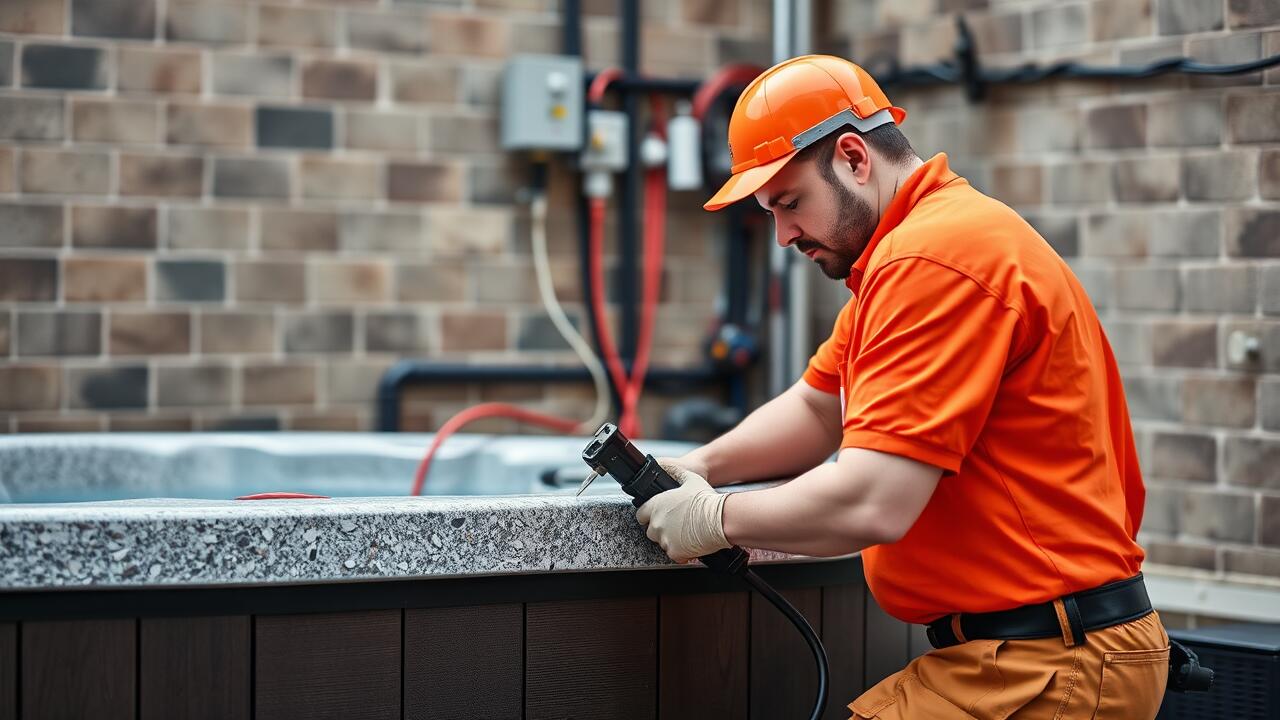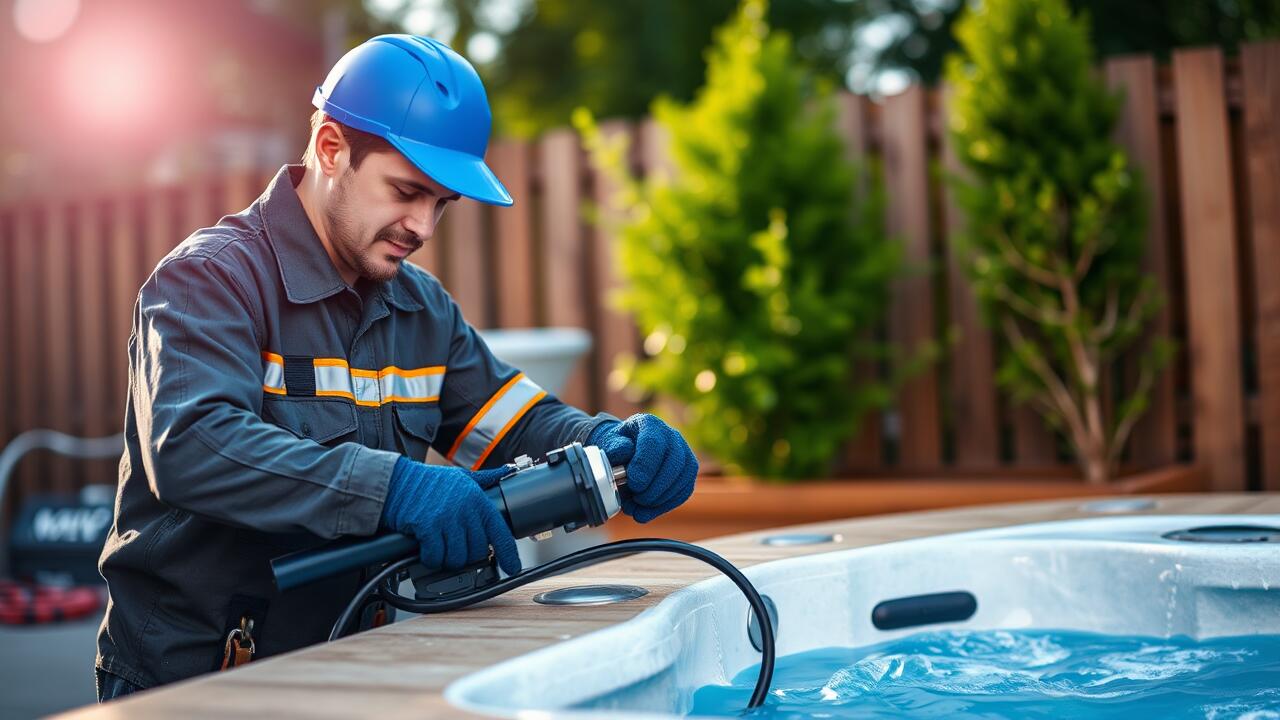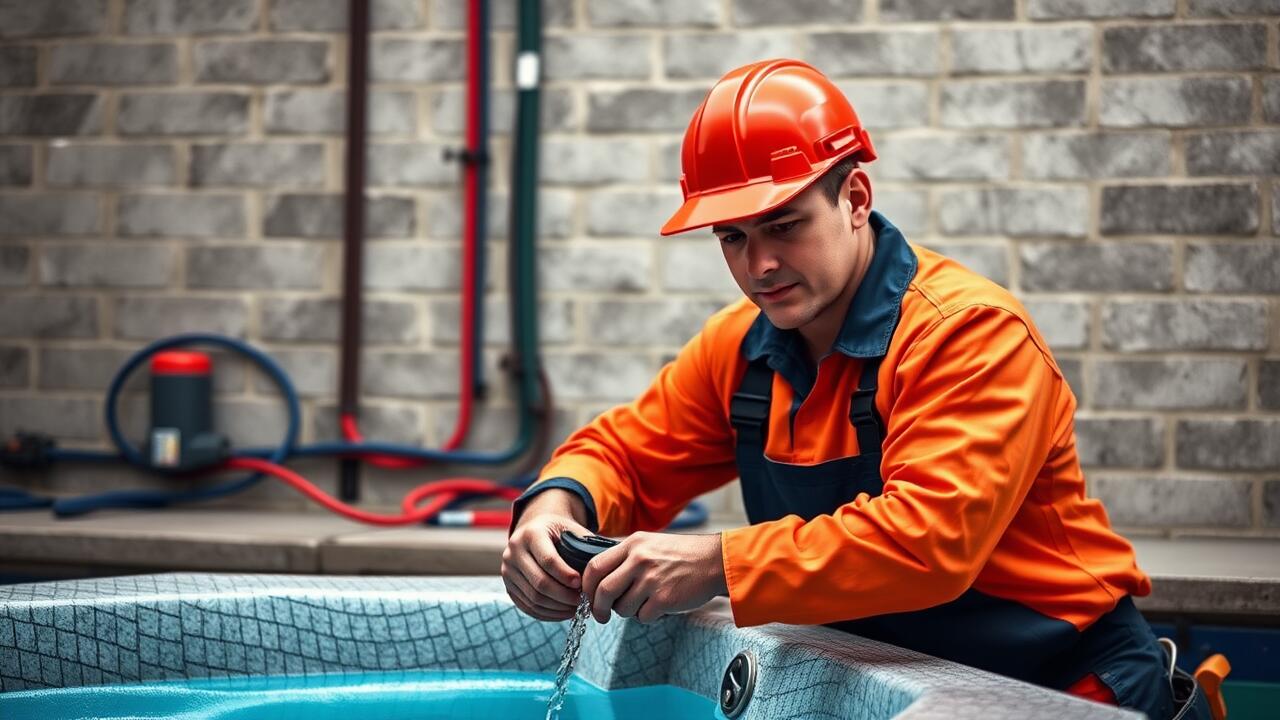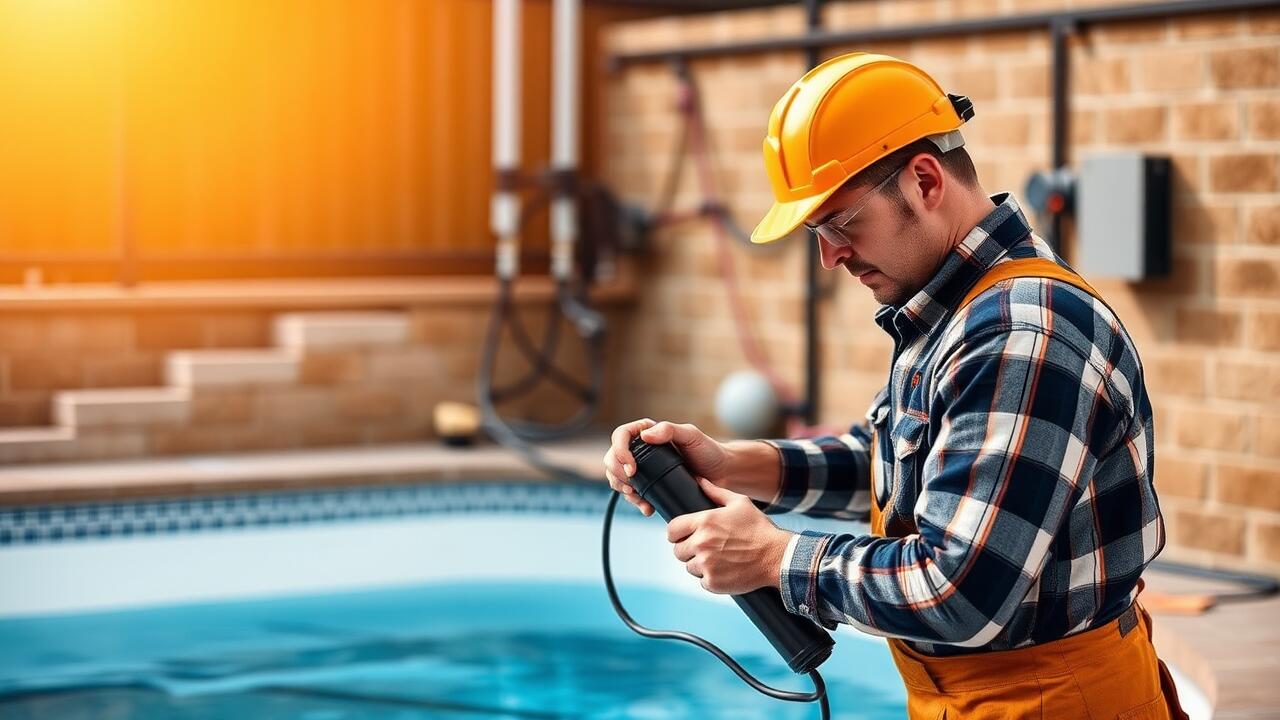
Ground Fault Circuit Interrupters (GFCIs)
Ground Fault Circuit Interrupters (GFCIs) are essential for ensuring safety in environments where water and electricity intersect. These devices are designed to quickly detect ground faults by monitoring the current flow in electrical circuits. When they sense an imbalance, which may indicate a leak of electrical current, GFCIs interrupt the power supply almost instantaneously. This rapid response is crucial in minimizing shock hazards, especially in areas like pools and hot tubs where water presence increases risk.
Proper installation of GFCIs is a critical component of Pool and Hot Tub Wiring in Bellaire West, Houston. Local building codes often require GFCIs for any outdoor electrical systems, particularly those associated with water features. By adhering to these regulations, homeowners can enhance safety for themselves and their guests. Ensuring GFCIs are functioning correctly can prevent accidents and significantly reduce the likelihood of electrical hazards in recreational areas.
Role of GFCIs in Hot Tub Safety
Ground Fault Circuit Interrupters (GFCIs) serve a critical role in ensuring the safety of hot tub installations. They are designed to monitor the electrical current flowing through a circuit and can detect imbalances, such as when current flows through an unintended path, like water or a person. When such imbalances occur, GFCIs act quickly to cut off electrical power, significantly reducing the risk of electrical shock or electrocution while using hot tubs. This feature is especially important in areas like Pool and Hot Tub Wiring in Bellaire Junction, Houston, where moisture levels are typically higher.
In addition to protecting users from shock, GFCIs are often required by local electrical codes for hot tub installations. Compliance with these regulations not only enhances user safety but also demonstrates a commitment to best practices in electrical work. Choosing a GFCI that meets or exceeds the relevant safety standards is essential. Proper placement of GFCIs according to the manufacturer's instructions further enhances their effectiveness. With these safeguards in place, users can enjoy their hot tub experience with greater peace of mind.
Wiring Materials and Types
Selecting the right wiring materials is crucial for the safe and efficient operation of hot tubs. Typically, outdoor hot tubs require specific types of wire that can withstand exposure to moisture and fluctuating temperatures. There are various types of wiring options available, such as THHN/THWN and UF cables, which are rated for wet locations. These materials help ensure safety and compliance with electrical codes.
When considering wiring for hot tubs, it is essential to follow local building codes and standards. Using wires with appropriate gauge sizes is necessary to handle the electrical load effectively. Additionally, consulting with professionals in Pool and Hot Tub Wiring in Memorial, Houston, can provide valuable insights and guidance on selecting the right materials to ensure a safe and reliable installation.
Best Practices for Selecting Wiring for Hot Tubs
When selecting wiring for hot tubs, it is essential to choose materials that can withstand moisture and potential exposure to various outdoor elements. Use wiring specifically rated for wet locations, such as UF (underground feeder) cable or other waterproof cables. Consider the gauge of the wire as well; thicker wires can handle higher amperage and reduce the risk of overheating. Consulting local electrical codes can provide guidance on the appropriate wire size based on the hot tub's requirements and distance from the power source.
In addition to choosing the right materials, consider working with an experienced electrician familiar with pool and hot tub wiring in Third Ward, Houston. Proper installation and adherence to safety standards can prevent electrical issues and ensure a safe environment. It's advisable to discuss your specific hot tub model and power needs with a professional to avoid common pitfalls during the installation process. Always prioritize safety and compliance with local regulations to keep your hot tub operational and secure.
Installation Process Overview
The installation process for hot tub electrical wiring requires careful planning and adherence to safety codes. Before beginning, it's essential to evaluate the location of the hot tub and determine the appropriate distance from buildings and water sources. Local regulations may dictate these parameters, so consulting with a licensed electrician familiar with Pool and Hot Tub Wiring in Greenspoint, Houston is advisable. This ensures that the project adheres to all necessary guidelines, minimizing risks associated with improper installation.
Once the site is properly assessed, the next step involves selecting appropriate wiring materials and components. Typically, outdoor-rated wiring is required, along with the necessary conduit to protect the wires from environmental factors. Ground Fault Circuit Interrupters (GFCIs) should be included to enhance safety and prevent electrical shocks. Following these preliminary steps lays a strong foundation for the successful installation of hot tub electrical wiring, ensuring both safety and operational efficiency.
Steps for Proper Hot Tub Electrical Wiring
Proper installation of electrical wiring for a hot tub involves several critical steps to ensure safety and compliance with local codes. Begin by determining the correct location for the hot tub and any required clearances from structures and outlets. After identifying the location, it is essential to install a dedicated circuit for the hot tub, typically requiring 240 volts. Use appropriate circuit breakers and ensure that the wiring is rated for both the hot tub's electrical load and outdoor use.
Once the circuit is established, proceed with careful installation of the wiring. Use suitable conduit to protect the wires from moisture and physical damage, especially in outdoor settings. Pay close attention to local regulations to ensure that all safety standards are met. For those in need of assistance, professionals specializing in Pool and Hot Tub Wiring in Bellaire Junction, Houston, can provide expert guidance and service. This step ensures that all elements of the installation are up to code and functioning safely.
FAQS
What is the purpose of a Ground Fault Circuit Interrupter (GFCI) in hot tub installations?
The purpose of a GFCI in hot tub installations is to protect users from electric shock by detecting imbalances in electrical current and shutting off power if a fault is detected. This enhances safety, especially in wet environments.
How often should I inspect the wiring of my hot tub?
It is recommended to inspect the wiring of your hot tub at least once a year. Regular checks can help identify wear and tear, ensuring that all electrical components are functioning safely and effectively.
What types of wiring materials are safest for hot tub installations?
The safest wiring materials for hot tubs typically include copper conductors, which are highly conductive and durable. Additionally, using materials rated for outdoor and wet environments, such as UF (Underground Feeder) cable, is advisable.
Can I install a hot tub's electrical wiring myself?
While some homeowners may have the skills to install hot tub electrical wiring themselves, it is strongly recommended to hire a licensed electrician. This ensures compliance with local codes and safety standards, reducing the risk of electrical hazards.
What are the best practices for selecting wiring for hot tubs?
Best practices for selecting wiring for hot tubs include using the appropriate gauge for the amperage, choosing materials rated for wet locations, and ensuring all wiring is compliant with local electrical codes. Consulting with a professional can help guide these decisions.
